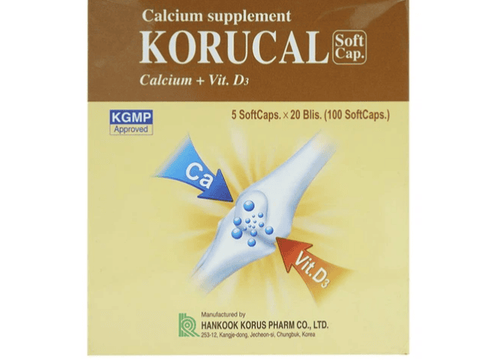This is an automatically translated article.
The article is professionally consulted by Specialist Doctor I Nguyen Thi Man - Department of Obstetrics and Gynecology - Vinmec International Hospital Da Nang.
When you haven't had a period for 12 months, you've reached menopause, which usually happens between the ages of 45 and 55. The period before menopause is known as perimenopause, which lasts from 1 to 5 years. 10 years, during this time, levels of the hormones estrogen and progesterone change continuously from month to month. Perimenopause usually begins in your 40s, but can begin in your 30s or even earlier.
1. How long does perimenopause last?
The average length of perimenopause is 4 years, but for some women it can last only a few months or up to 10 years. Perimenopause ends when a woman has gone 12 months without a period.2. What are the signs of perimenopause?
Women in perimenopause have at least some of the following symptoms:Hot flashes Soft breasts Severe premenstrual syndrome Decreased sex drive Premenopausal fatigue Irregular menstruation Vaginal dryness ; discomfort during sex Leakage of urine when coughing or sneezing Frequent urination Mood swings Difficulty sleeping.

3. Some ways to manage perimenopause symptoms
Tiny mid-period spottingIf you notice some blood on your underwear when you haven't used tampons or tampons, it could be spotting due to hormonal changes and endometrial accumulation. If spotting occurs every two weeks, it could be a sign of a hormonal imbalance.
You should record to track your menstrual cycle, including information about spotting such as: when it started, how long it lasted, when it got heavier.
To prevent leaks and blood stains from contaminating your underwear, you can choose to wear panty liners in a variety of sizes and materials. You can even buy reusable pads, like Lunapads, that are made of fabric and are washed over and over again.
Abnormally Heavy Bleeding When estrogen levels are high compared to progesterone levels, it increases the size of the lining of the uterus as well as increases blood flow leading to heavier bleeding during menstruation. Or the last month has not had a period, so this month the lining of the uterus accumulates more, leading to heavy bleeding.
Bleeding is considered heavy when:
Requires dual protection - such as tampons and tampons to control bleeding Causes you to change your tampon or tampon during sleep Bleeding lasts more than seven days. When heavy and prolonged bleeding affects your daily life. You may find it uncomfortable while exercising or at work. Heavy bleeding can also cause fatigue and increase the risk of other health problems, like anemia.
To deal with this condition, you can take ibuprofen (Advil) during your period which can help with menstrual cramps, reducing bleeding flow by 30%. Try taking 200 milligrams at a time, spaced 4 to 6 hours apart.
If symptoms like cramps and pain don't go away, talk to your doctor about hormonal treatments.
Brown or Dark Blood The color of blood in menstrual flow can range from bright red to dark brown. Brown or dark blood is a sign of old blood accumulating and exiting the body. Women going through menopause may also see brown spots or discharge at different times of the month. In addition, you may see a change in vaginal discharge such as a thin, watery vaginal discharge or it may be lumpy and thick.
If you are concerned about your vaginal discharge, you should see a gynecologist. The color change is usually due to a change in the time it takes for blood and tissue to exit the body, but it can sometimes be a sign of another underlying medical condition. If the vaginal discharge is foul then this could be a sign of an infection.
Shorter menstrual cycles When estrogen levels are low, the lining of your uterus becomes thinner. As a result, bleeding may be lighter and last for fewer days. Short menstrual cycles are common in the early stages of perimenopause. For example, your menstrual cycle may be two or three days shorter than usual. The entire cycle can also last two or three weeks instead of the previous four.
If you're concerned about your menstrual cycle being shortened and unpredictable, consider using tampons, menstrual cups, or antimenstrual underpants more often and earlier than in the past.
Longer menstrual cycles During the later stages of perimenopause, menstrual cycles can become longer and more widely spaced. A longer menstrual cycle is defined as a cycle length that lasts longer than 36 days as a result of a non-ovulatory cycle.
To avoid the hassle of a longer cycle, you can use a menstrual cup or menstrual cup or tampon to prevent menstrual leakage.
General Irregularities Between long cycles, short periods, spotting and heavy bleeding, the menstrual cycle in perimenopause is often irregular, not following any pattern until near menopause.
You can:
Consider wearing black underwear or regular underwear to reduce the risk of damaging your pants. Consider wearing disposable or reusable pantry liners to avoid accidental leaks, blood spots. Track your menstrual cycle through an app on your phone. Take note of any unusual bleeding, pain, discomfort, or other symptoms you experience.

Gynecological examination Gynecological examination, breast examination Transabdominal ultrasound of uterus and ovaries Taking samples for cervical-vaginal cytology Mammogram (2 sides) Osteoporosis Measurement Perform other tests to detect premenopausal conditions, if any. Target audience:
Women aged 45-55, possibly younger (when suffering from premature ovarian failure), menstrual irregularities, sexual disorders, suspected endocrine disorders, or need to use hormone replacement therapy, or want to prepare yourself for perimenopause and menopause.
Clients have risk factors such as smoking, long-term stress, undergoing cancer treatment, having surgery to remove 1 or 2 ovaries.
Customers have symptoms such as menstrual irregularities, sexual disorders, psychological changes, sleep
Please dial HOTLINE for more information or register for an appointment HERE. Download MyVinmec app to make appointments faster and to manage your bookings easily.
References: Webmd.com and Healthline.com













